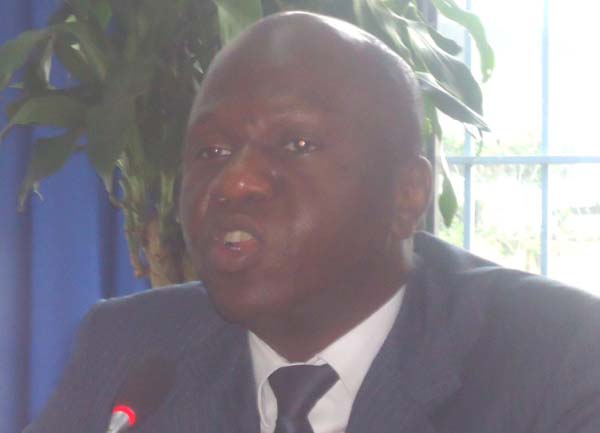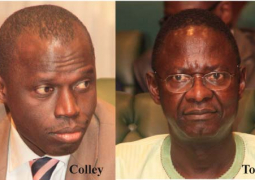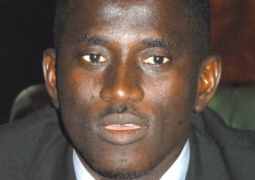
These were the statements disclosed by Abou Bamba, Coordinator of the Abidjan Convention, during the official opening ceremony of a three-day cross-learning training workshop for African environment journalists recently held at the convention`s head office in Abidjan.
He posited that the outcome of the training would lead to the creation of a network of core journalists and communicators that would frequently report on pressing marine and coastal environmental trends, concerns and solutions in the region.
Dilating more on this unique training tailored to suit electronic and print environmental journalists, Bamba noted that the objective is to familiarize them with the science of the Marine and Coastal environment, as well as ocean governance issues by enhancing their news gathering, feature writings, commentary and broadcast skills.
It is also designed to bring to the doorsteps of hundreds of millions living within the Atlantic coastline of the continent for a better attitudinal change towards the environment with greater media sensitization, reporting and public awareness.
Introducing the Convention`s background information to the classroom of journalists and reporters, Abou Bamba revealed: “The Abidjan Convention is a comprehensive umbrella agreement, which came into force in 1984, for the protection and management of the marine and coastal areas of the South-Eastern Atlantic Ocean from Mauritania to the western seaboard of South Africa. Pollution from or through the atmosphere and from ships, dumping, land-based activities, exploration and exploitation of the seabed are among its pressing concerns and issues which require control.”
He added: “The Convention has also identified environmental management issues for which cooperative efforts are needed. These include coastal erosion, especially protected areas, combating pollution in cases of emergency and environmental impact assessment. The Convention also has articles on scientific and technological cooperation, liability and compensation.”
Furthermore, during his presentation, the Convention coordinator disclosed that due to activities of millions of people living along the fragile coastlines and the enormous offshore hydrocarbon exploration and exploitation activities in the area, the marine and coastal areas within the Abidjan Convention area are under tremendous stress.
Counting on the importance of this training workshop, Bamba said journalists are their partners and a vital ingredient agent in sensitizing the public and officials to trigger positive behavioural change as a collective strength needed to mitigate the environmental problems and impact of climate change on coastal communities and their livelihoods.
In keeping with the decision of COP 10 and calls for public awareness-raising issues in the region, the coordinator said the convergence of environmental journalists is being held under the auspices of UNEP’s Division of Environmental Policy Implementation.
According to the UNEP`s Communication Officer for the Africa Region, Angele Luh, media participants were drawn from within the 22 countries which make up the Abidjan Convention area, spanning from Mauritania to South Africa.
According to the UNEP`s communication expert, the media stakeholders would hone their skills to be able to report on pressing marine and coastal environmental trends and issues in their countries and regions.
This, she said, will require focus on issues such as the sources and activities causing pollution, some of which are industrial emissions and discharge, uncontrolled dumping of indiscriminate solid waste in coastal shoreline and water ways and other land-based activities.
She lamented that some regional seas activity including over-fishing; marine, ocean governance; coastal-based tourism; trends in anti-pollution policy and laws are of major concern to the Abidjan Convention of the United Nations Environment Programme.
Lead trainer David Israelson revealed that by the end of the training the participants would be able to establish and put up a formidable network of marine and coastal environmental journalists that can provide constant and authoritative reporting on relevant issues within the Abidjan Convention coastline area that stretches for some 14,000 kilometers.
He said the curriculum will cover techniques in environmental feature writing, news techniques, opinions and commentary writing.
Some tips, he said, would be on how to make best use of a news release and how to use a news release related to the Abidjan Convention.
In welcoming the school of reporters and communication officers, the Convention`s Assistant Coordinator of Communications, Olu Sarr, revealed that the workshop is the first of its kind for the Abidjan Convention funded by the Swedish International Development Agency (SIDA).
This, he said, was a recommendation of the Conference of Parties (COP) to the Abidjan Convention in 2012 to raise public awareness of the Convention on issues related to marine and coastal environmental.
He revealed that the objectives of the convention to raise awareness of coastal and marineenvironment issues across all the countries in the Abidjan Convention region to inform and influence policy and decision-making, and to increase understanding of the role and mechanism of the convention in the protection, management and sustainable development of the marine and coastal environment of the Atlantic Coast of the West, Central and Southern African region.
Furthermore, he said, the convention will also help build and sustain a network of environmental journalists and communicators who can share expertise, information and insights to support the objectives of the Convention.
Sarr further disclosed that the Convention provides an overarching legal framework for all marine-related programmes in West, Central and Southern Africa and their activities include developing and implementing regional programmes and projects that tackle trans-boundary issues.
He added that the convention also encourages member states to cooperate in combating pollution in cases of emergencies as well as in tackling scientific and technical issues.
In summary, Sarr tasked the participants, saying: “The challenge is on you the media.”
Countries in the Abidjan Convention area are Angola, Benin, Cameroon, Cape Verde, DR Congo, Rep. of Congo, Cote d`Ivoire, Equatorial Guinea, Gabon, Gambia, Ghana, Guinea, Guinea-Bissau, Liberia, Mauritania, Nigeria, Sao Tome & Principe, Senegal, Sierra Leone, South Africa and Togo.
Read Other Articles In Article (Archive)
Grasp This Great Opportunity
Apr 8, 2008, 5:51 AM
GTB hands over new facility to Bakau women fruit sellers
May 8, 2014, 9:51 AM



